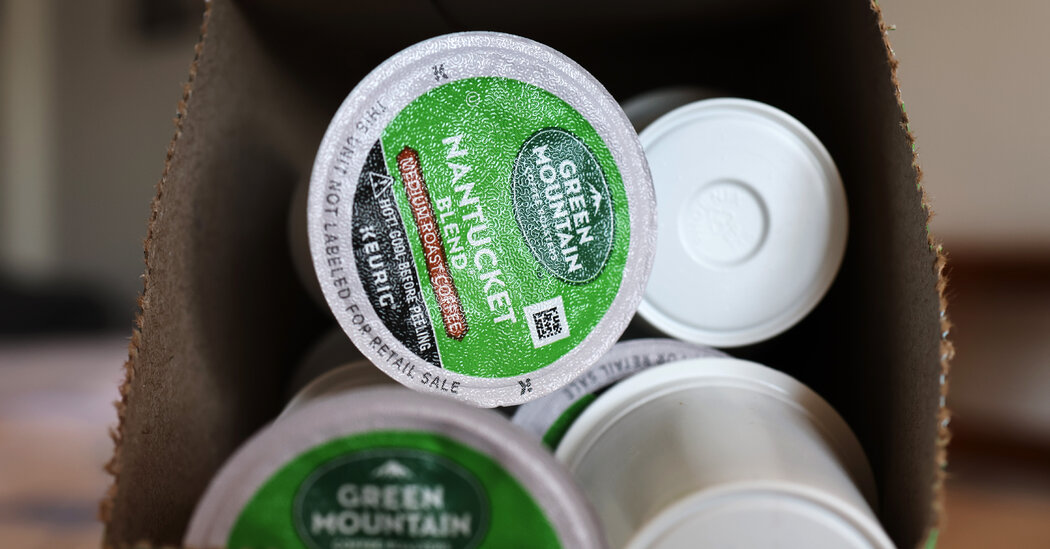The agency said Keurig, in its financial filings, had claimed its pods could be “effectively recycled” but didn’t note that two big recycling companies wouldn’t accept them.
Financial regulators on Tuesday charged Keurig Dr Pepper, the maker of popular K-Cup single-use coffee pods, with making inaccurate claims about the recyclability of the plastic pods.
The fine, $1.5 million, is small for one of the world’s largest beverage companies. Keurig Dr Pepper has a market capitalization of more than $50 billion. Still, experts said the action signaled a willingness by financial regulators to challenge recycling claims based on the principle that they could be inflating a company’s shareholder value.
“Public companies must ensure that the reports they file with the S.E.C. are complete and accurate,” said John T. Dugan, an associate director at the Securities and Exchange Commission.
Jan Dell, who runs the environmental nonprofit the Last Beach Cleanup, said it was notable that shareholder concerns had driven the enforcement action, rather than charges of consumer deception and marketing, which are overseen by the Federal Trade Commission. “The S.E.C. has stepped up to be the federal sheriff” on misleading recycling claims, she said.
To settle the regulators’ charges, Keurig agreed to pay the $1.5 million civil penalty.
Keurig has for years said in both its marketing and financial reports that its beverage pods, which millions of Americans rely on for their caffeine fix, “can be effectively recycled.” But the company did not disclose that two major recycling companies had raised concerns over whether curbside recycling programs could recycle the pods, and said they would not accept them, the S.E.C. said in its order.
Keurig Dr Pepper said it was “pleased to have reached an agreement that fully resolves this matter.” It has neither admitted or denied the S.E.C.’s findings, and maintains that its pods are made from “recyclable” plastic.
